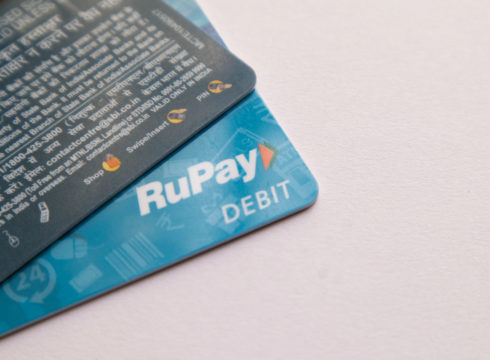SUMMARY
The rationalisation is effective across the point of sale (PoS), eCom and BharatQR code
MDR has been revised to 0.60% for transactions above INR 2,000 with a maximum cap of INR 150 per transaction
The card-based QR transactions (Bharat QR) MDR also has been reduced to 0.50%
Inc42 Daily Brief
Stay Ahead With Daily News & Analysis on India’s Tech & Startup Economy
On Friday, the National Payments Corporation of India (NPCI) rationalised merchant discount rate (MDR) for RuPay debit card transactions, effective October 20, 2019. This will support merchants to accept hi-value digital payments.
The rationalisation is effective across the point of sale (PoS), eCom and BharatQR code-based merchant transactions. It said that the MDR has been revised to 0.60% for transactions above INR 2,000 with a maximum cap of INR 150 per transaction.
At present, this is capped at 0.90% for transaction above INR 2,000 with a higher cap of INR 1,000 per transaction. Further, the card-based QR transactions (Bharat QR) MDR also has been reduced to 0.50% with a maximum cap of INR 150 per transaction, to boost asset lite infrastructure for digital payments.
In a media statement, NPCI’s managing director and CEO Dilip Asbe said, “With the reduction and capping of MDR merchants will now be encouraged to accept debit cards, which up till now they were averse due to higher MDR structure.”
The reduction in MDR is aimed at creating a cost-effective value proposition for all stakeholders in the payments ecosystem, thereby increasing merchant acceptance footprint across the country.
The development came after the government had recently said that businesses with an annual turnover of INR 50 Cr will not have to pay a merchant discount rate on debit card and other digital modes of transactions, excluding credit cards.
While amending MDR rates, finance minister Nirmala Sitharaman said, “RBI and banks will absorb these costs from the savings that will accrue to them on account of handling less cash as people move to these digital modes of payment.”
Recently, RBI data showed that RuPay reported 1 Bn transactions through both online and offline merchant payment modes in the financial year 2019, a nearly 70% jump compared to 667Mn transactions in financial year 2018.
NPCI-owned card plans to widen the scope of usage of RuPay globally to boost the brand. The company is competing against global payments network behemoths, primarily MasterCard and Visa. RuPay’s growth in India and the government’s emphasis on the same has given cold feet to international players who have repeatedly complained of such preferential treatment.
The yearly RBI bulletin of Payment system indicators showed the growth of debit cards on PoS, which was 32% increase in the volume of transactions via debit cards on PoS, reaching 4.4 Bn in 2018-19 from 3.3 Bn in 2017-18. The value of transactions increase was nearly 29% reaching INR 5934.75 Bn in 2018-19.
Note: We at Inc42 take our ethics very seriously. More information about it can be found here.


